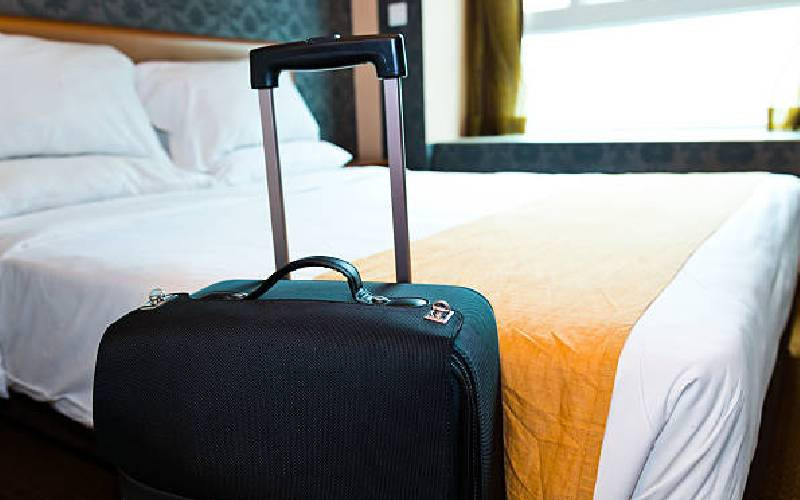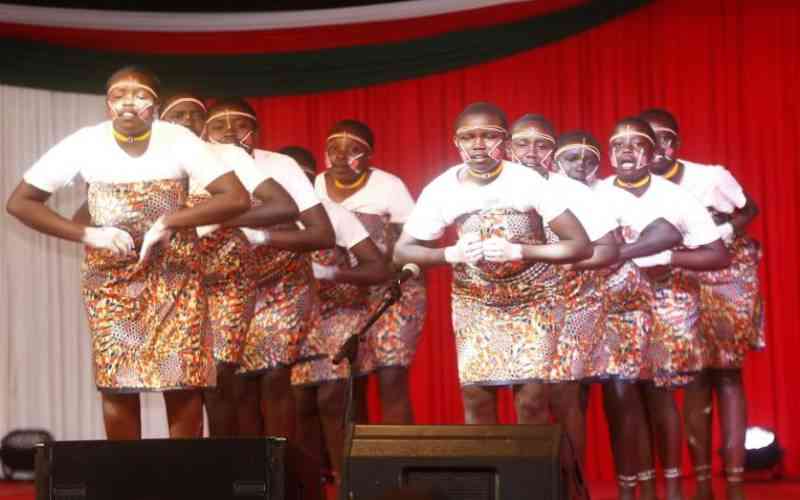Elizabeth Njoroge has proved that music is not a reserve for men. The entertainer with a difference is flying high in the male-dominated area as an events organiser with a touch of classical music. She spoke to CAROLINE NYANGA
I grew up in the outskirts of Nairobi, within a coffee farm in Kiambu.
I am the last born in a family of four. I had a happy childhood with lots of love and support from my family. My family was musical and everyone played an instrument and sang.
We had a piano in the house, which I often spent time playing. That piano remains in the house todate.
My first music teacher was an aunt and she set a great foundation for me. I also went for musical classes at the Kenya Conservatoire of Music.
Both in Muthaiga Primary School and in Kenya High School where I was a student, I was a music prefect and a head girl. I led the school in various competitions at the Kenya Music Festivals.
While in school I was part of a singing group, called The Angels of Harmony. We were six classmates and friends at Kenya High School. We wrote our own music and sang in the chapel as well as during many school functions. We were quite celebrated at the time.
I have always admired America’s top celebrity TV talkshow host, Oprah Winfrey. With great courage and determination she has carved her own niche and gone to become the best in what she does.
Biochemist student
I have also always believed I can achieve anything I desired in life no matter how difficult it may seem.
Upon completing high school, I left for Canada and UK for further studies. But even as a Biochemistry student at McMaster University, Canada, and at Strathclyde University in the UK, music remained a big part of me. I would study during the day and take music classes in the evenings.
With time, I secured myself a job in line with my profession but music never ceased to hold a special place in my heart.
After living abroad for 14 years, I decided to come back home.
I was saddened to find that despite a vibrant musical scene, classical music was not represented. It was hard to find information on musicians and concerts. With no intention of starting a revolution, I decided to ‘do my own thing’ and create the world I wanted for myself.
This started with me holding small recitals and putting out a free newsletter that had the information I believed classical music lovers would be interested in. To my joy and astonishment, I found out that there were many lovers of this genre, who had been waiting for this opportunity—a breath of fresh air.
Stay informed. Subscribe to our newsletter
Apart from making classical music more accessible and available, I also want to grow musical talent locally and beyond.
That is why I have been involved in organising classical events around the country. A good example is the monthly classical evening’s club held at the Louis Leakey Auditorium at the Nairobi Museum. It is held every second Thursday of the month and is free for the audience.
Western instruments
Many friends and fans wonder what classical music has got to do with Kenyans. Contrary to many misguided notions that classical music has no place in Africa, its discipline and skill can be used to enhance our musical language. Just listen to the music of Soweto String Quartet its Western style, but African heart! Music is a universal language with no barriers.
I run an organisation called The Art of Music based in Nairobi’s Hurlingham area. It provides opportunities to young talented musicians as well as raise the profile of classical music.
We have started a programme, The National Youth Orchestra of Kenya that puts together young talented Kenyans regardless of age, social and economic background. The orchestra was launched in August of this year and includes 36 gifted youth from around the country. They performed at the new Constitution promulgation ceremony.
We also run a project in Korogocho called Ghetto Classics that uses music to empower the youth there. For me, what matters is the fact that the training instills discipline, teamwork and commitment in them. They do not necessarily have to become musicians, but what they learn will help them achieve their dreams in life.
Following a serendipitous encounter with Michael Joseph, the CEO of Safaricom, the Safaricom Classical Fusion Festival was born. The first and biggest of its kind in the region.
It gives classical music and musicians an excellent chance to be in the spotlight. Last year’s festival saw 120 performers on stage and an audience of 4,000. Not a mean feat.
Huge crowds
This year we are confident the festival will be bigger and better. Today, we shall showcase about 400 performers from Kenya and South Africa.
We are confident the audience will have a wonderful afternoon sharing in the glorious music and atmosphere.
In line with making classical music accessible, the ticket prices are a bargain and the environment will be geared to a wholesome family outing.
I listen to music all the time and what I’m listening to depends on my mood. However, I do have a soft spot for the music of Verdi, Rachmaninoff, Piazzola and Handel. I also love classical jazz and roots reggae!
 The Standard Group Plc is a
multi-media organization with investments in media platforms spanning newspaper
print operations, television, radio broadcasting, digital and online services. The
Standard Group is recognized as a leading multi-media house in Kenya with a key
influence in matters of national and international interest.
The Standard Group Plc is a
multi-media organization with investments in media platforms spanning newspaper
print operations, television, radio broadcasting, digital and online services. The
Standard Group is recognized as a leading multi-media house in Kenya with a key
influence in matters of national and international interest.
 The Standard Group Plc is a
multi-media organization with investments in media platforms spanning newspaper
print operations, television, radio broadcasting, digital and online services. The
Standard Group is recognized as a leading multi-media house in Kenya with a key
influence in matters of national and international interest.
The Standard Group Plc is a
multi-media organization with investments in media platforms spanning newspaper
print operations, television, radio broadcasting, digital and online services. The
Standard Group is recognized as a leading multi-media house in Kenya with a key
influence in matters of national and international interest.










